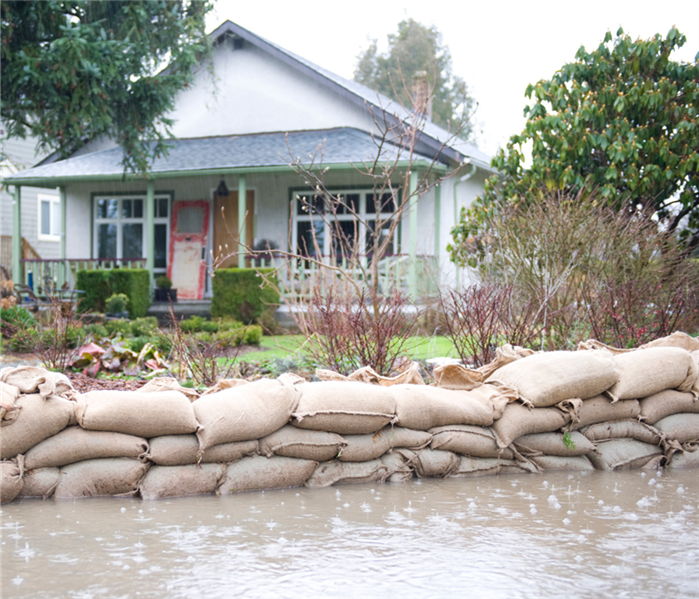How To Prepare For a Flood
3/14/2022 (Permalink)
When a natural disaster causes a state of emergency to be declared, SERVPRO franchises from across the nation come together for what we call STORM. Over the years, SERVPRO has responded to different natural disasters. One of the natural disasters SERVPRO responds to, in particular, is flood damage situations. Unfortunately, floods are one of the most common natural disasters in our country, and many people are not familiar with flood safety. Listed below is a list of seven tips to remember when preparing for a flood.
Before A Flood…
Are You In A Flood Zone?
Preparation for floods starts before you purchase a home. Potential homeowners should know if their home is within FEMA’s flood zone. For current homeowners who don’t know whether or not their home is in a flood zone, you can check online through the FEMA flood map.
Make Sure You Have Flood Insurance!
Whether you live in a FEMA-designated flood zone or not, it is important to invest in flood insurance. Home insurance does not protect against flood damage. If your home is at medium or high risk for flooding, it is even more crucial that you purchase food insurance. Once you have purchased flood insurance, it is important to remember that it does not go into effect until 30 days after the purchase date. Having the necessary coverage is better to have than to not before the weather takes a turn for the worst.
Evacuate If It’s Mandatory or Necessary
If major flooding is predicted for your area, it is extremely important to keep up with your local weather stations for evacuation updates. If an evacuation is ordered, you should evacuate immediately. Evacuation orders are put in place to protect you. If a disaster occurs and an evacuation for your area has been announced, this means that first responders will not be able to travel into your area and help you in an emergency.
Gather Safety Supplies
If a mandatory evacuation has not been announced yet, gather enough supplies to keep you and your family safe for at least one week. These items include drinking water and non-perishable food for your entire family. Batteries, dry clothes, blankets, and medication are other supplies that should be stored in a location high enough that minor floodwaters won’t reach.
Place sandbags in front of all exterior doors. The sand absorbs water and is the best way to keep minor floodwaters from entering your home.
Relocate Valuables to Higher Ground
Floods can be very unpredictable. SERVPRO highly recommends you move any valuable belongings to your attic or second floor to your home. Items such as TVs, electronics, and anything else of value should all be relocated to higher ground.
Protect Important Documents
To ensure important documents are not lost to water damage during a flood, keep all your insurance papers, social security cards, and passports in a waterproof container. This will also save you a ton of time if flooding does occur in your home.
Clear Your Gutters
Cleaning out your gutters before heavy rain is expected to roll through, will help prevent your home from sustaining water damage. During intense rain, gutters and downspouts can become backed up and can cause serious damage. To keep unwanted debris from clogging up your gutters and drains, gutter guards are a good investment to consider.





 24/7 Emergency Service
24/7 Emergency Service
